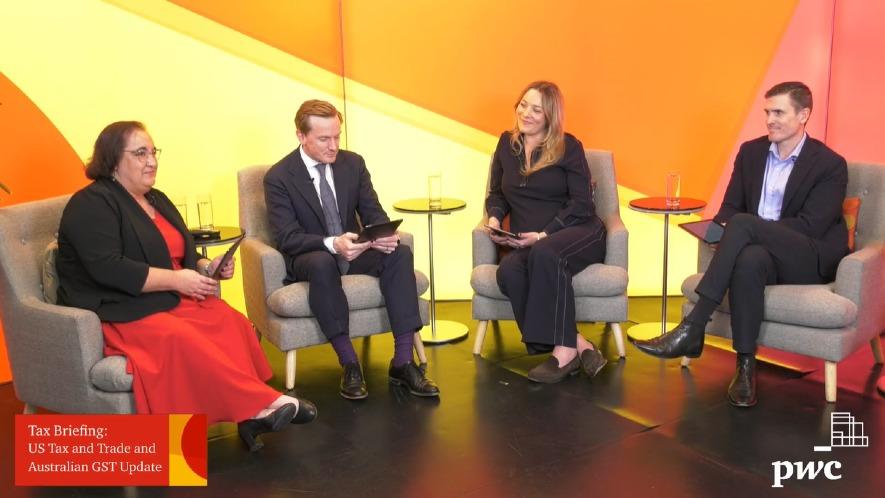Our July 2025 Tax Briefing webcast, hosted by Patricia Muscat and Stuart Landsberg, facilitated an engaging session with experts from PwC’s Global Trade and Indirect Tax teams, including Paul Cornick, Lara Jobling, Mark Simpson, Mark De Luca and Priyanka Panchal. The discussion highlighted developments in US tax policies and GST assurance, two domains critical to navigating the current tax landscape.
Delving first into US-centric discourse, the conversation shed light on the evolution of the US tax system under recent legislation, specifically the ‘One Big Beautiful Bill Act’. This Act brings both challenges and opportunities for businesses with US activities. The good news from an Australian perspective is that the so called ‘revenge tax’ provision in section 899 was not included in the final Act off the back of a ‘deal’ between the US and the G7 countries regarding the interaction of the Pillar Two regime with the US tax system. Our panelists discussed what this means for the future of Pillar Two globally and in Australia, and whether section 899 is likely to reemerge at a later date.
This was followed by an in-depth discussion on the latest tariff news out of the US. There has been a lot of change in this area over a short period of time, with all countries (including Australia) facing at least a baseline level of tariffs of 10% from 1 August 2025. Our panelists discussed how Australia is responding to these tariffs, which industries are most impacts (both directly and indirectly) and how tax functions can support businesses to navigate the constant volatility in this space. For the latest updates on US tariff, refer to our Tax Alert. As we transitioned to a discussion on GST, the focus turned to the introduction of the Supplementary Annual GST Return (SAGR), which must be completed by Top 100 and Top 1,000 public and multinational taxpayers starting in FY25, where they have received a GST assurance report with a GST assurance rating by 30 June 2024. It is aimed at collecting information on taxpayers’ ongoing investment in GST governance as well as ensuring correct GST reporting.
During the discussion, it was underscored that taxpayers should not delay preparations until a formal GST assurance review is initiated or the taxpayer is notified it is required to lodge a SAGR. Early engagement is key, alongside maintaining thorough documentation exemplifying objective evidence, thereby addressing any ATO recommendations or flagged risks in GST assurance review. This preparation, combined with investing in comprehensive GST governance, can indeed influence the scope and intensity of future GST assurance reviews under the ATOs differentiated approach.
The conversation unpacked the approach to addressing ATO recommendations. Having clear, detailed plans accompanied by objective evidence assures compliance and readiness for future discussions with the ATO. For those constrained by time or resources, it remains beneficial to outline intended post-lodgment strategies, fostering a positive narrative with tax authorities and demonstrating an earnest commitment to rectifying flagged issues. Read more about the SAGR in our Tax Alert.
You can watch the virtual event on demand now.





© 2017 - 2025 PwC. All rights reserved. PwC refers to the PwC network and/or one or more of its member firms, each of which is a separate legal entity. Please see www.pwc.com/structure for further details. Liability limited by a scheme approved under Professional Standards Legislation.











